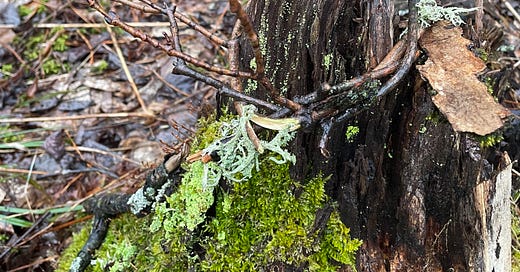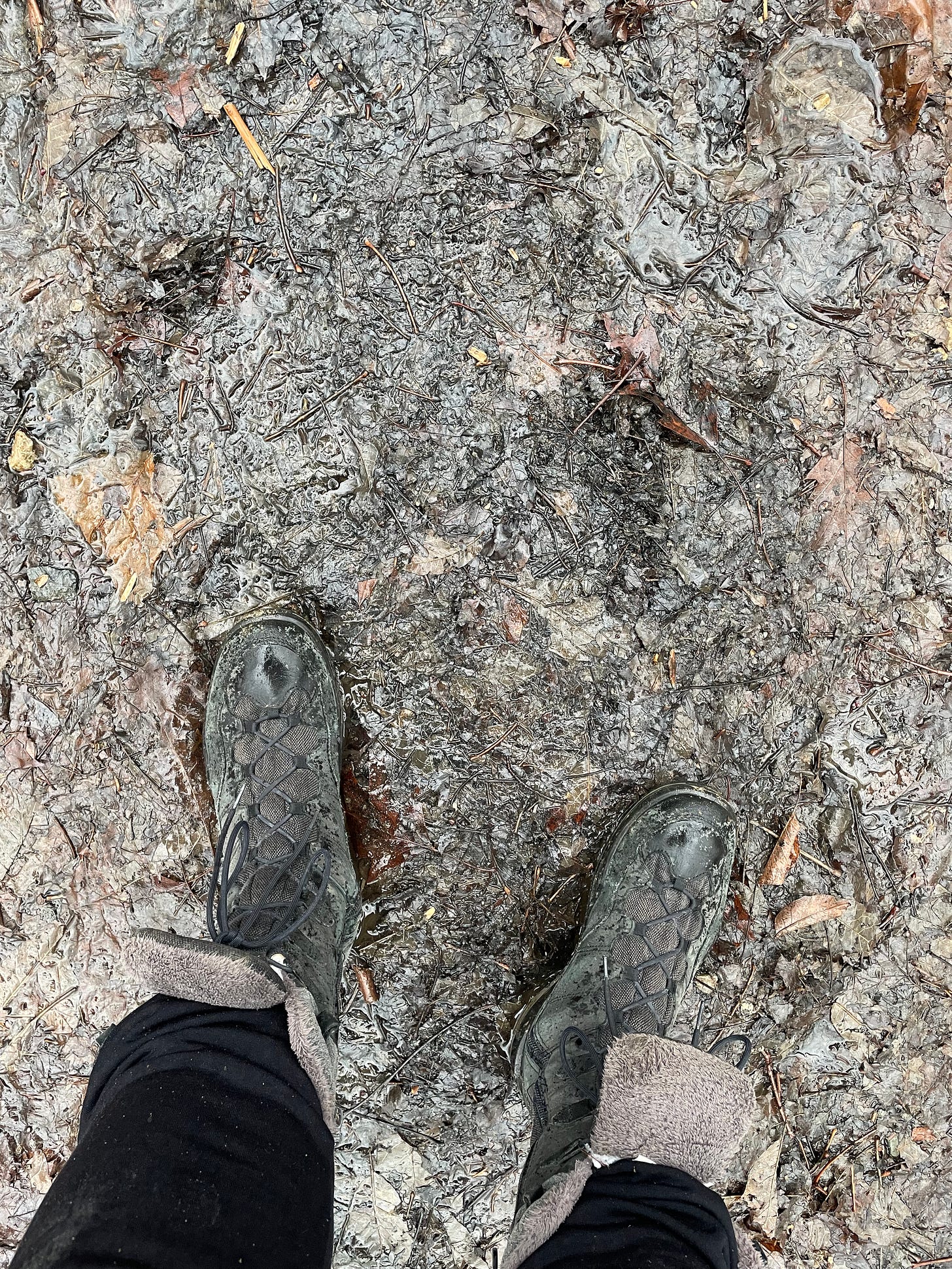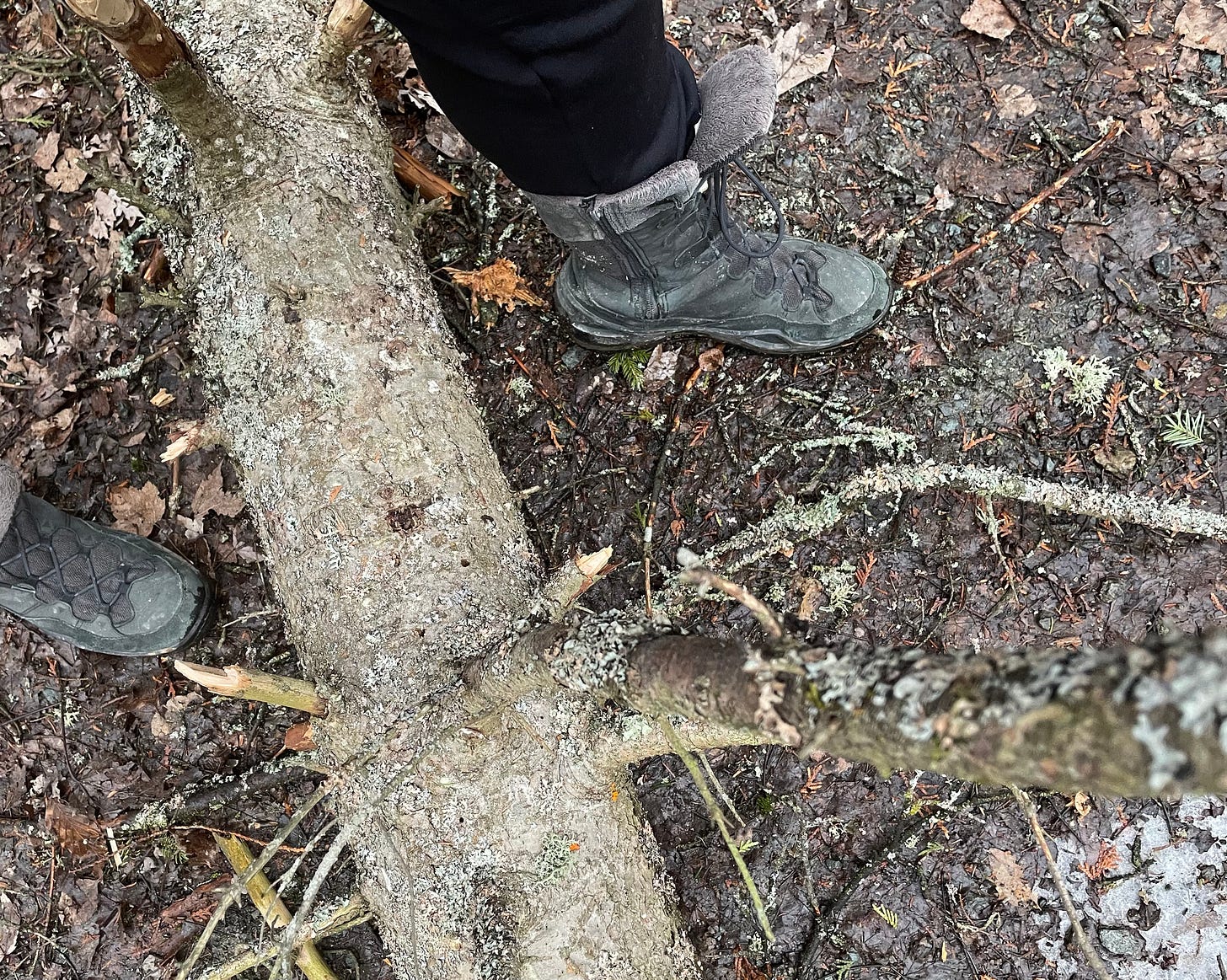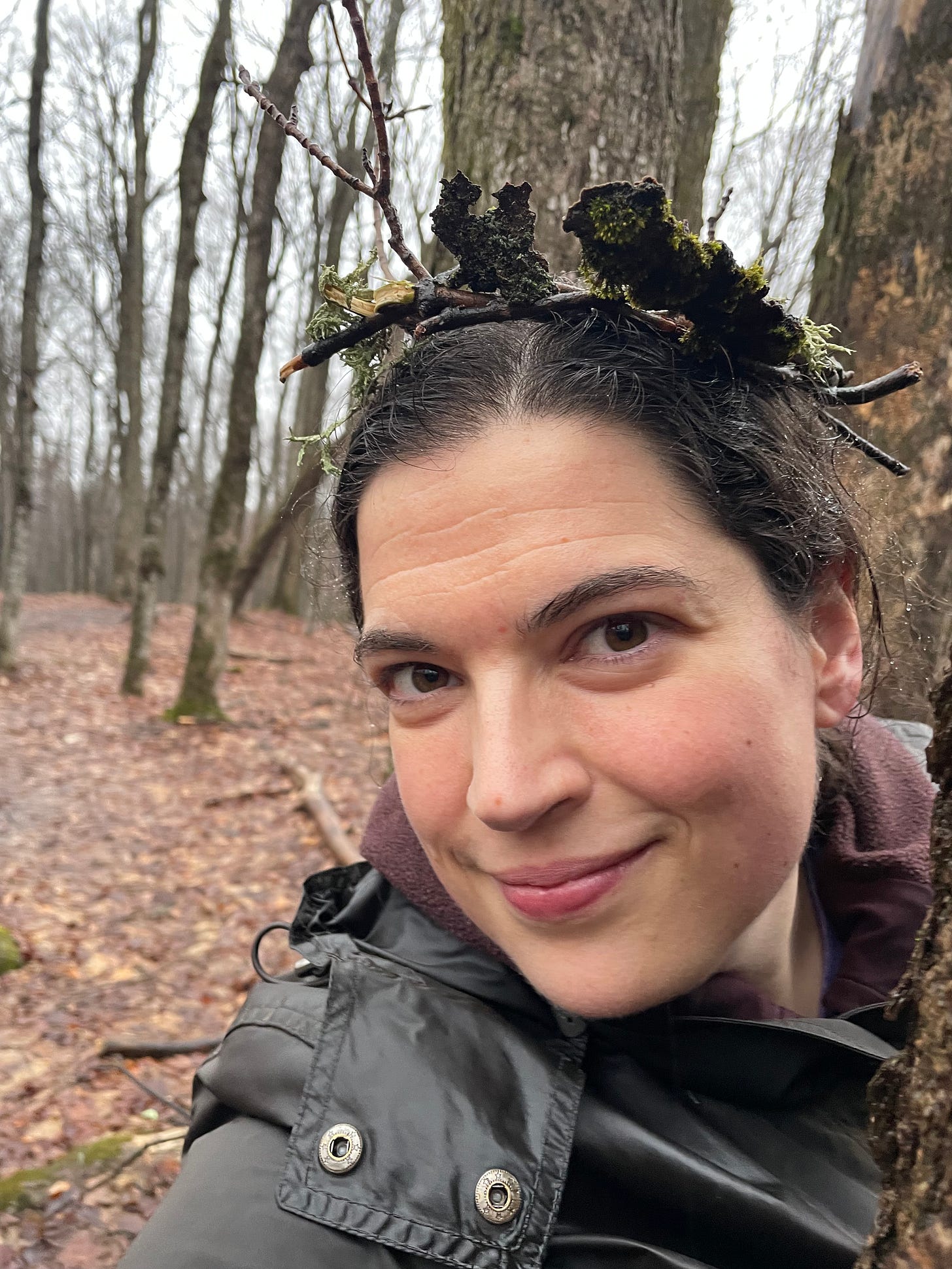The Sensuality of Thaw
On the mud that comes after the ice {Notes From the Dissertation Desk #2}
Hello,
The mud surprised me (it always does).
After weeks of cursing the ice that made walking in the woods slow and precarious, I expected to greet the thaw with relief. But I had forgotten that the same warmth that melts the ice is what releases all that mud. Ooey, gooey mud. My movement on the forest paths still needed to be careful: even in its warmth and softness, mud can be as slippery as ice.
As in the woods, so at the dissertation desk. Around the same time that the ice melted into mud, my body and brain began warming to my doctoral work after a season of freeze. I had more capacity to write, but progress was slow and scattered. The muds of the forest guided me in my own thaw, showing me that the soupiness in my brain was normal, natural—soothing my anxiety that the ice hadn’t melted into crocuses and daffodils: not yet, not yet.
The thaw is messy. After the freeze, the earth gets molten before solidifying into its summertime shapes. Even a caterpillar turns into goop before emerging as a butterfly.
Metamorphosis demands dissolution.
Today’s notes from the dissertation desk explore the sensuality of the thaw. What does it feel like to move from one state to another? How do our expectations color our encounters with the materiality of the moment? Is there pleasure to be found in the squish of a boot in a puddle of mud?
Warmly and goopily,
P.S. You can read Walking on Ice: Notes from the Dissertation Desk #1 here.
February 29
Here’s the thing about the thaw:
after the ice comes the mud.
There’s warmth, but movement must still be slow.
It’s messy.
It’s slippery.
It’s the path into spring.
When my squirrelly mind wants to leap from THESIS.docx and dash over to Instagram or the draft of a poem, I do not shame her.
Instead I take her in my arms.
She is slippery, she is warm.
The mess is natural.
This is the goop that will solidify into the soil for the blossoms (and dissertation submissions) of spring.
March 1
Let it flood, she said.
Instead of trying to shove my mind back to the paragraph, I cradled my head in my hands. Panic flooded down my legs and up my spine, and I let it. The waters raged. The waters receded.
I’m still here, she said.
I opened my eyes. I was still here, too.
I am not learning how to push.
I am learning to hold and be held.
March 2
A note from the dissertation desk, on the day after the flood.
I wrote pages and pages and pages today. My dissertation’s word count soared and my fingers tippytapped and my mind organized data into coherent arguments.
And the effort of today took so much less courage and energy than the flood, when the work at the dissertation desk was measured not in words but in connection maintained in the face of fear.
The tangibility of healing is a mystery. I would have guessed that it grows out of unblocked productivity like today, but I suspect it actually takes form when, in the rage of the flood, we find anchors in self.
Today is a relief.
But,
the words I wrote yesterday are so precious to me.
March 8
I went to the woods out of words, wondering how to sustain all the sections of the dissertation that remain to be written. As I sloshed through the mud, I felt a nudge to pick up a twig and another twig and some lichen puffs and moss-covered bark, and then twist them into a diadem.
An invitation received and accepted.
Being an artist is about listening with all our senses, seeking out new ways of knowing, and responding to the materials around us with our whole bodies.
Same could be said of being a human.
I went to the woods asking about my work, and heard an answer about my humanity. That working in new ways (i.e., pushing without tearing) will require a new approach. There’s trust in surrendering to softness and play.
I love how artist Kiki Smith, in an interview with Louisiana Channel, talks about collaborating with the physical world in her work:
“Follow your work as truthfully as you can, even when it brings you into ditches, rather than holding an idea of what you want it to be. You have to show up and do it. It’s a collaboration between you and the physical world, and you need to risk having that relationship wherever that goes.”
March 9
My brain is a bowl of soup! I lamented to her as I tried to reorder the chapter’s paragraphs. My thoughts were sloshing around my head without any structure. I took a deep breath and then copied and pasted a paragraph to its new home in the middle of the section. Much better. My brain congealed and onward I went.
I am in awe of the capacity of a soupy brain after such a long time with a frozen one.
I rejoice in this mud.












